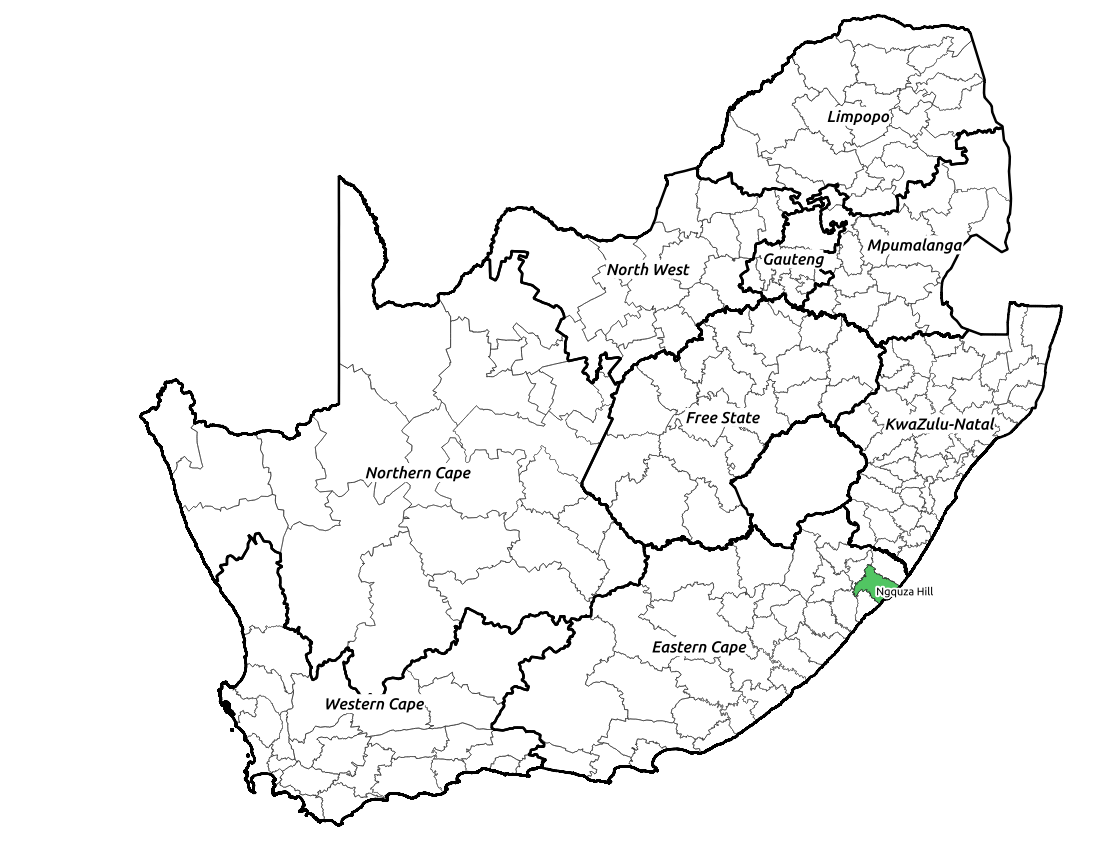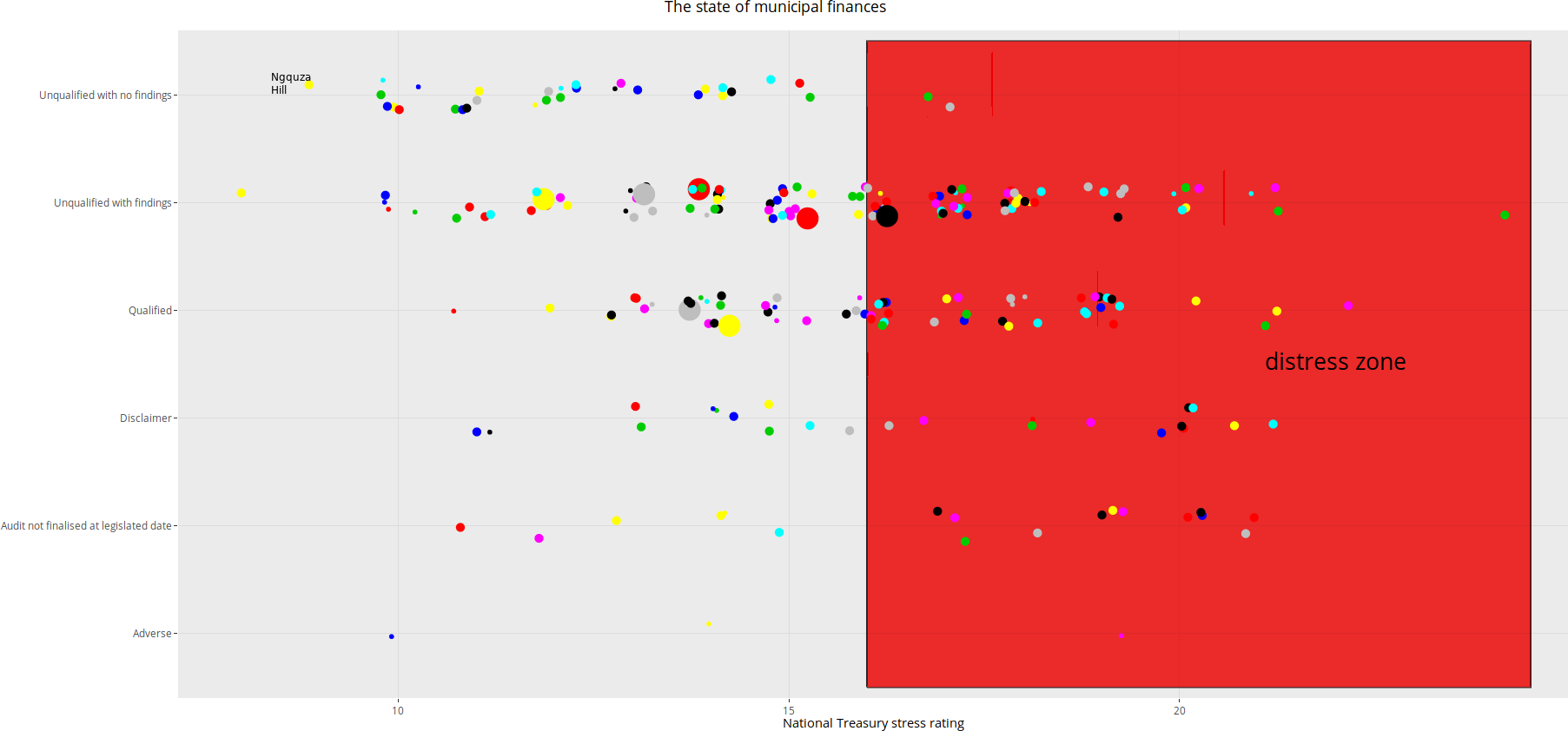In May the National Treasury, Department of Cooperative Governance and Traditional Affairs (Cogta) and the Auditor General released figures reflecting the quality of municipal administration across the country. Each of the assessments reflects different aspects of municipal administration.
National Treasury scores each municipality on the basis of how poorly they meet eight prescribed financial ratios. All municipalities which have a score of 16 or more are considered “financially distressed” – a higher score indicates greater distress.
The Auditor General explores the extent to which municipal financial administration complies with financial rules of how revenue can be spent. The gold standard for the Auditor General is a clean audit i.e. one that is ‘unqualified and without findings’. This rating indicates that revenue has been spent in accordance with the prescribed rules and, by implication, monies have not been misappropriated or misspent.
Cogta supplement the National Treasury ratios with additional information like whether the Municipal Infrastructure Grants (MIG) have been spent on time.
When the Treasury rating is read with the Auditor Generals’ assessment for 2016/17 it seems that, Ngquza Hill, a small rural municipality in the Eastern Cape is the best administered municipality in the country. Ngquza Hill gets the lowest National Treasury score for financial distress (9) and received a clean audit in 2016/17. This shows that it abides by the financial ratios prescribed by National Treasury and complies with rules regarding, inter alia, awarding tenders and filling posts.
Ngquza Hill is a relatively small municipality centred on Flagstaff in the Eastern Cape. The municipality has a largely rural population of about 300 000 and it has no major urban centre. As such it falls into that category of municipalities thought unlikely to attract staff of sufficient quality to efficiently administer the area. The municipalities performance suggests that having a modest population, being rural and not having a large urban centre is not necessarily an obstacle to good administration.

By contrast no metropolitan municipality managed to get a clean audit in 2016/17 and all metros show higher levels of financial distress. The municipalities that most closely match Ngquza Hill’s performance are uMhlatuze (KZN), Swartland (WC), Overstrand (WC), Drakenstein (WC) and the Cape Winelands District Municipality (WC). With the exception of uMhlatuze each of these has a smaller population than Ngquza Hill and also tend to be largely rural.
The graphic below shows the location of Ngquza Hill on the spectrum of audit outcomes and distress ratings.

Click on the link for the interactive version of the graph: http://develappmentalstate.co.za/mnfinman18.html






